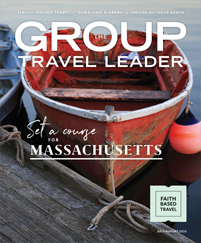Recent fatal motorcoach accidents have again shown how important it is for group leaders to fully understand the potential liability that they and their groups can be assuming before sponsoring a group trip.
It goes without saying that this is a litigious society, so it is important to make certain in advance that proper precautions have been made, should an unexpected incident occur. Please don’t choose a coach operator based solely on price, but make them prove that they are worthy of the group’s business.
Liability and liability insurance
Any trustworthy carrier will be proud to provide evidence of a superior safety record, a high standard of fleet maintenance and ample liability coverage, plus list you as a “co-insured” under their policy. (Many such companies are members of the American Bus Association).
Remember, however, that such insurance will only cover you when group members are actually aboard the motorcoach. Consequently, it is important that you also make sure that you are covered by liability or errors and omissions insurance at all times throughout a trip… coverage that a sponsoring organization may already carry, coverage that is automatically provided by responsible tour operators, such as most members of the National Tour Association (NTA) or the United States Tour Operators Association (USTO), or coverage that you can buy yourself. You can ignore this recommendation only at your own financial peril.
Governmental regulations
Motorcoach companies must be licensed by the Department of Transportation to carry passengers across state lines. To qualify for such a license, they must also have a minimum of $5 million in liability insurance. Similarly, to provide transportation within a given state, a motorcoach operator must also be approved by a “Public Utilities Commission” or its equivalent.
Although exceptions are made for schools and universities for students and sports teams, as well as for local transportation needs of non-profit organizations such as churches and senior centers, it is highly unlikely that vehicles so exempted would be “legal” for vacation-type travel on tours sold to individuals on a per capita basis, even if there is no intention to actually turn a profit. If there is any question, the organization’s legal counsel should certainly be consulted. And if the group leader or organization is intending to earn a profit, there is no question that a properly licensed and insured transportation provider must be used.
What this means is that a group organizer cannot just go to a local rental car agency, rent a van, and take a group of paying passengers on a trip without being in violation of the law and putting him or herself (as well as any sponsoring organization) in extremely serious liability jeopardy, should an accident occur.
Distinguishing between liability and general travel insurance
There is a fair amount of confusion between liability insurance — under which, one way or another, any conscientious, fiscally responsible group leader must be covered — and the standard travel insurance coverage sold to group travelers. The latter, which can either be purchased as an option by individual members of a group, or included in the package tour price, is certainly worthwhile, but has nothing to do with — and provides absolutely no coverage on — matters of liability.
Instead, depending on the specific policy chosen, travel insurance can only cover such potential areas of concern as trip cancellation, trip interruption, medical attention, hospitalization, medical evacuation transportation, accidental death or dismemberment, loss, delay or damage to baggage, etc. Although it makes good sense, and can prove profitable for the group leader to offer travelers such “peace of mind” coverage, it is not a substitute for making sure that adequate liability insurance is also in place.











